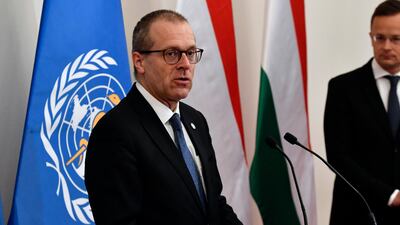About 36 million people in Europe may have experienced health problems related to long Covid, the World Health Organisation's regional director said on Tuesday.
As attention turns away from the Covid pandemic, the prevalence and problems of long Covid are now receiving more focus.
Covid-19 is still causing about 1,000 deaths each week across the WHO’s Europe region, Hans Kluge said, but “this is an underestimate due to a drop in countries regularly reporting” fatalities to the international organisation.
Dr Kluge said long Covid remained “a complex condition [that] we still know very little about”, describing it as “a glaring blind spot in our knowledge”.
He said there were almost 36 million people who may have had long-lasting health problems from coronavirus infections during the first three years of the Covid-19 pandemic.
“Whilst it may not be a global public health emergency, however, Covid-19 has not gone away,” the WHO regional director for Europe said.
“Unless we develop comprehensive diagnostics and treatment for long Covid, we will never truly recover from the pandemic.”
The WHO's European region is made up of 53 countries, from Ireland to Uzbekistan, and includes several in Central Asia.
Most people recover from Covid quickly, but there are others who report continuing fatigue, shortness of breath and brain fog.
Research from the University of Washington in the US indicate that about one in 30 of the region's 900 million residents have experienced long Covid in the past three years, Dr Kluge said.
In Europe, “Covid-19 exploited an epidemic of diseases, including cancers, cardiovascular disease, diabetes and chronic lung illnesses, which account for 75 per cent of mortality”, he added.
“Those with such underlying conditions were, and still are, far more vulnerable to severe forms of Covid-19.”
Last month, the WHO said that Covid no longer qualifies as a global emergency, more than three years after organisation first declared coronavirus an international crisis.
The agency emphasised at the time that this does not mean the pandemic has ended, noting recent spikes in cases in South-East Asia and the Middle East.


